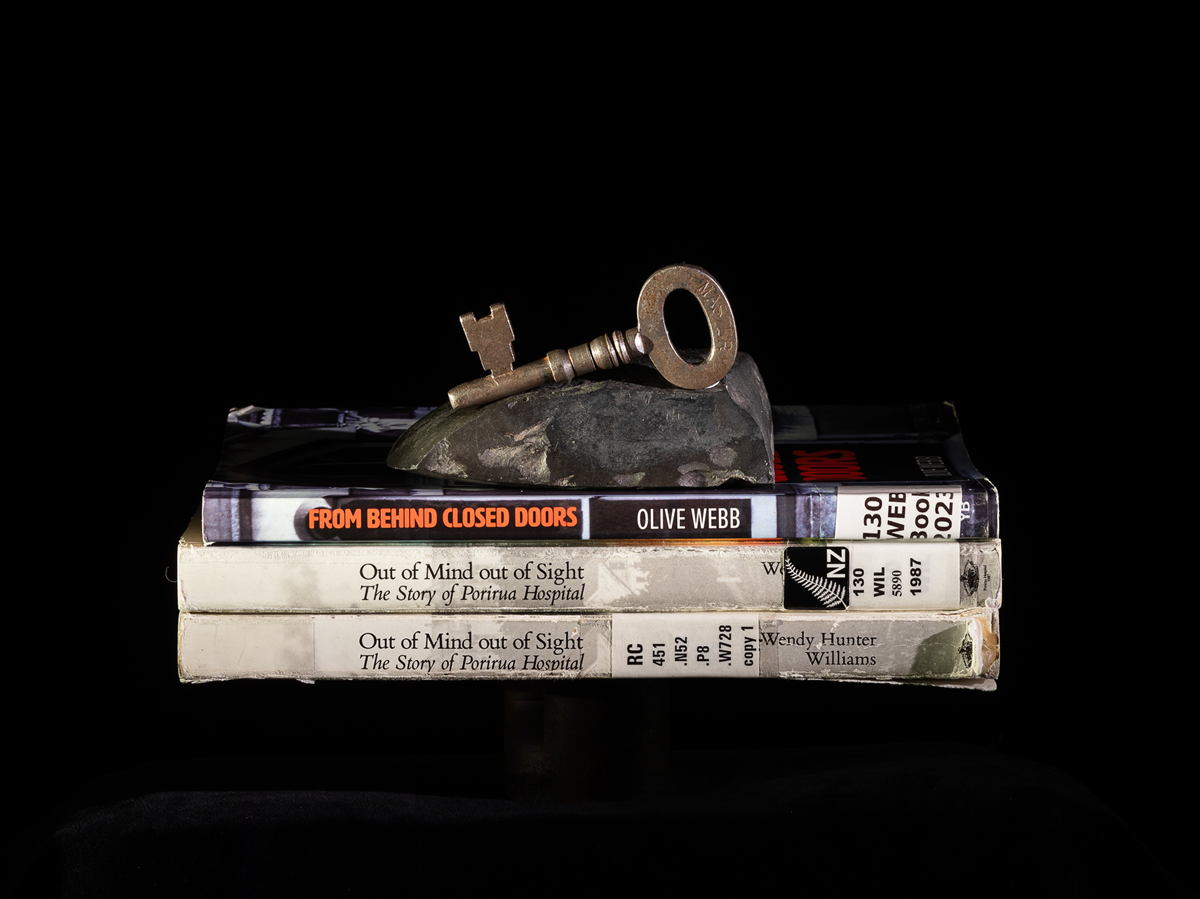Categories
Recent articles
Picturing 75 years

Nothing About Us Without Us is an exhibition to mark IHC’s 75th anniversary. It tells the story of IHC’s formation and evolution through remarkable photographic portraits, still-life images and archival material.
Curated by Ōtautahi Christchurch-based photographer Bridgit Anderson, the exhibition is one of a number of projects that celebrate the anniversary, including a book, the National Kapa Haka Festival, a series of oral histories and a digital timeline.
“It’s important to reflect on the past if we are to go forward,” says IHC’s General Manager of Programmes, Janine Stewart.
Nothing About Us Without Us includes archival photographs of some of the most important people in IHC’s history, including self-advocacy pioneer Sir Robert Martin and Keith Anyon, whose parents were the driving force behind the organisation’s establishment in 1949.
There is also a series of still-life images intended to symbolise how far IHC has come over the years, and how far it still needs to go.

A Key to Your Own Home features a key that was given to Janine when she began working at Porirua Hospital in the 1980s.
“It was a key that let you in to every ward and every restricted area,” she says. “No patients or clients or service users were allowed a key. It means we locked people in.”
Janine believes keys are powerful symbols of both institutionalisation and freedom in the disability sector.
Another image, a huge stack of books called Awakenings, is an important symbol for curator Bridgit.
“It demonstrates how incredibly diverse intellectual disability is. I wanted to express some of that in a shorthand way.”
Bridgit has worked with IHC for a number of years, but when it came to the job of curating the exhibition, she felt she didn’t know much about the organisation at all.
“IHC’s history is massive. I specialise in human interest and social history storytelling, but there were times when I just felt totally overwhelmed.
“I knew I could only touch on certain things, so I had to work out how to do that powerfully. How do I get underneath what the mission is for IHC? What drove those shifts and changes over the years?”
The 1983 battle of the buses led by Sir Robert Martin was a defining event for Bridgit.
“That felt like a really pivotal moment,” she says. “A powerful vision of IHC advocacy coming together with self-advocacy, so I put it in the centre and worked backwards and forwards from there.”
The exhibition also helps capture the organisation and its many important visionaries before it’s too late.
“I was aware of how many of IHC’s pioneers and advocates are now aging,” says Janine. “This rich history has to be seen in the context of a whole and it has to be through people.
“People think photos are about a moment, but these portraits really capture the determination and perseverance you have to have when advocating for people with intellectual disability. Some of the women look quite tough and maybe they didn’t normally look like that.”
Janine also wants the exhibition to serve as a prompt for people inside and outside IHC. “We’ve said to visitors if this provokes a story in you or if you think we’ve got something wrong, you can let us know.”
Nothing About Us Without Us will go to the the Hawke’s Bay Foto Fest exhibition this year and Janine is adamant it will not be broken up.
“The value of the photos is their curation and the stories they tell. For me it’s quite extraordinary for an organisation to be around for 75 years and to have stuck to its mission.”
Bridgit describes working on the exhibition as a humbling experience. “I’ve learnt so much. I’ve met so many people who went through being institutionalised and brutalised and not only survived it but went on to help others.”
She wants the message of the exhibition to be resolutely positive. “I want people to be uplifted. The exhibition is designed to educate and empower because that’s what’s happened to me.”
Caption: Documentary film still, 2010. Protest against having to travel in labelled IHC vans, recreated by clients from the Sommerville Disability Support Centre in Whanganui.

This story was published in Strong Voices. The magazine is posted free to all IHC members.
Download PDF of Strong Voices issue




.jpg)




